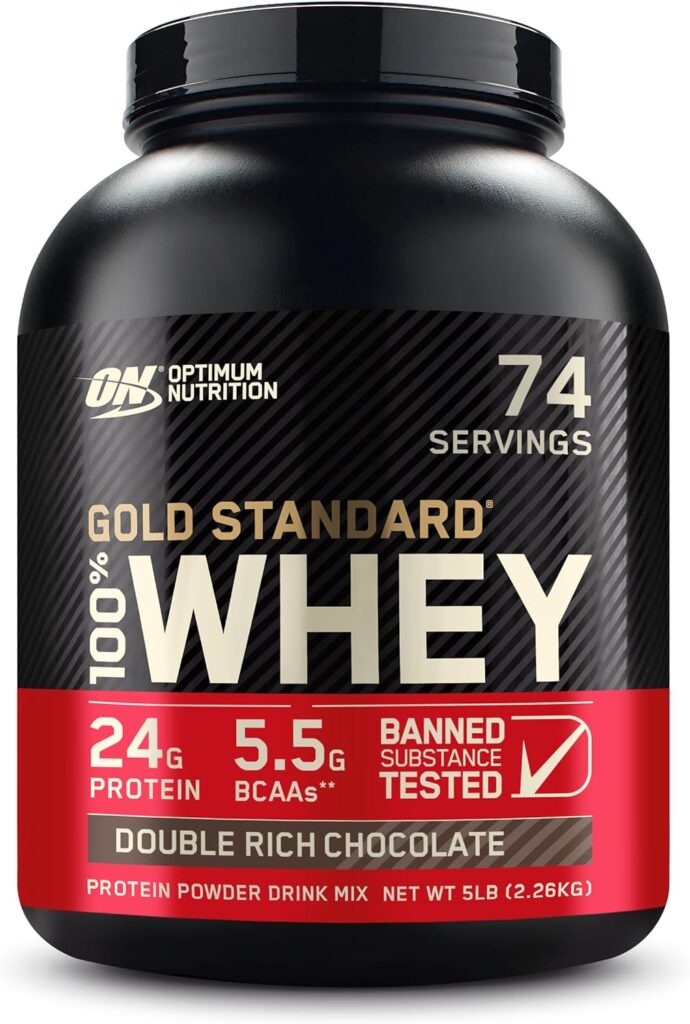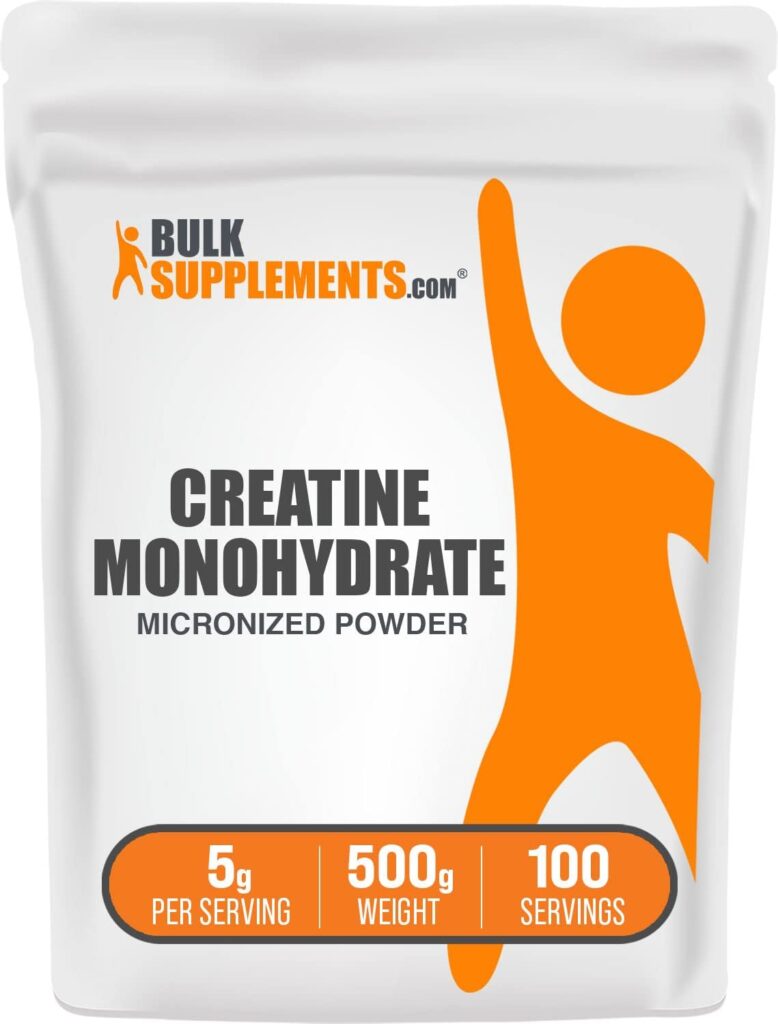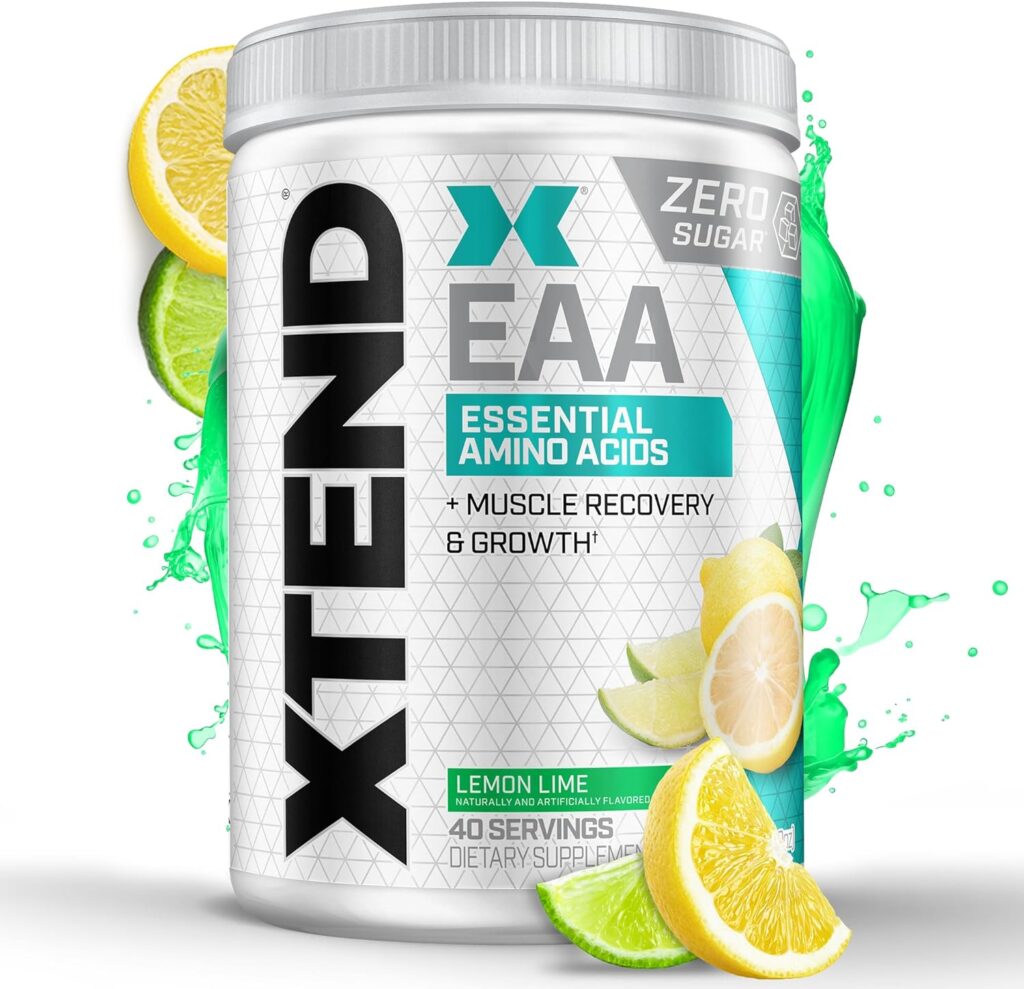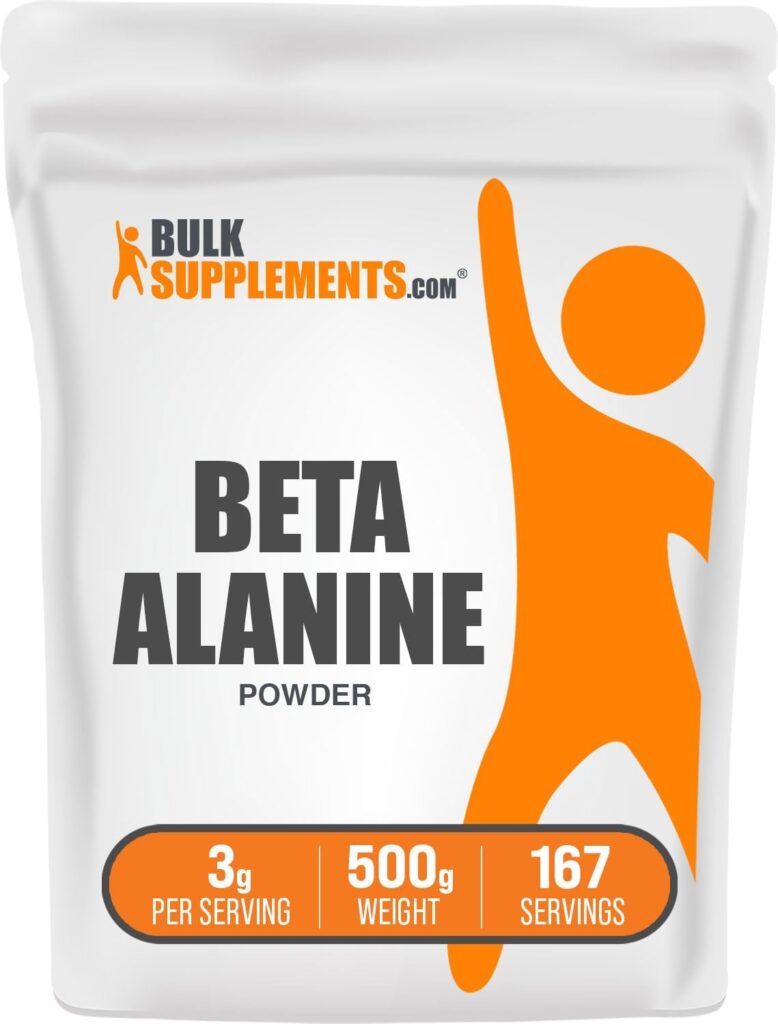This blog may contain affiliate links, meaning I earn a small commission if you make a purchase through these links, at no additional cost to you. As an affiliate, I only promote products and services I trust and believe will add value to my readers.
I never thought I’d be the guy recommending supplements. For years, I believed food was all you need for muscle growth.
But then I hit a plateau in my training that seemed impossible to break.
Frustrated and desperate for progress, I reluctantly decided to give supplements a try. To my surprise, the results were transformative.
Now, I’m here to share what I’ve learned about the best muscle building supplements for beginners, hoping to save you from the same stubborn plateau I faced.
The Foundation: Protein and Creatine
When it comes to muscle building supplements for beginners, two stand out as the undisputed champions: protein powder and creatine monohydrate. These supplements work together to help you build muscle and strength more effectively than you could with diet alone.
Protein Powder: Your Muscle’s Best Friend
Protein is the building block of muscle. While you can certainly get enough from whole foods, protein powder offers convenience and rapid absorption that’s hard to beat.
Whey protein, in particular, is a favorite among bodybuilders and athletes for it’s complete amino acid profile and quick digestion.
I remember the first time I mixed a scoop of whey protein with water after a grueling workout. The taste wasn’t great (I’ve since found better-tasting brands), but the difference in my recovery was noticeable within days.
I felt less sore and more energized for my next workout.
To maximize the benefits of protein powder, aim for 1.6 to 2.2 grams of protein per kilogram of body weight daily. For a 70kg person, that’s about 112-154 grams of protein per day.
Protein powder can help you reach this target, especially on days when getting enough protein from whole foods is challenging.
Creatine Monohydrate: The Strength Booster
If protein is the building block, creatine is the foreman overseeing the construction. This naturally occurring compound helps regenerate ATP, your body’s energy currency, allowing you to push harder and longer during workouts.
When I first started taking creatine, I was skeptical. But after a few weeks, I noticed I could add an extra rep or two to my sets, and my overall strength was increasing faster than before.
It felt like unlocking a cheat code for my muscles.
Creatine is one of the most researched supplements in sports nutrition, with a strong safety profile. The standard dose is 5 grams per day, and there’s no need to cycle on and off.
Consistency is key with creatine supplementation, so make it a part of your daily routine, regardless of whether it’s a training day or not.
Beyond the Basics: BCAAs and Beta-Alanine
Once you’ve got your protein and creatine routine down, you might want to explore other supplements that can give you an edge in your muscle-building efforts.
BCAAs: The Recovery Accelerators
Branched-Chain Amino Acids (BCAAs) are a group of three essential amino acids: leucine, isoleucine, and valine. They’re particularly effective at reducing muscle soreness and promoting muscle protein synthesis.
I started using BCAAs during my workouts when I increased my training frequency. The difference was subtle but noticeable – I felt less sore the next day and was able to maintain my intensity across more frequent training sessions.
BCAAs can be especially beneficial if you’re training in a fasted state or if you have a hard time getting enough protein in your diet. They can help preserve muscle mass during intense training periods and may improve recovery between workouts.
Beta-Alanine: Endurance Enhancer
Beta-alanine is an amino acid that helps produce carnosine, a compound that buffers lactic acid in your muscles. This can lead to improved endurance during high-intensity exercises.
When I first tried beta-alanine, I experienced the famous ‘tingling’ sensation (called paresthesia) that some people get. It was a bit unnerving at first, but I soon got used to it.
More importantly, I found I could push through those last few reps with more ease, especially in higher rep ranges.
Beta-alanine’s effects are most noticeable in exercises lasting 1-4 minutes. If your workouts involve a lot of high-rep sets or circuit training, you might benefit more from this supplement.
The standard dose is 2-5 grams per day, and like creatine, consistency is key for seeing results.
Implementing Your Supplement Strategy
Now that we’ve covered the key players in the beginner’s supplement arsenal, let’s talk about how to apply them effectively.
- Start with the basics: Begin by adding protein powder to your diet.
Use it to hit your daily protein goals, especially on days when getting enough protein from whole foods is challenging.
- Introduce creatine: Once you’re comfortable with protein supplementation, add creatine monohydrate.
Take 5 grams daily, regardless of whether it’s a training day or not.
- Assess your needs: If you’re training often and feeling excessively sore, consider adding BCAAs to your intra-workout drink.
- Fine-tune with beta-alanine: If you’re looking to improve your endurance in the higher rep ranges, beta-alanine could be a good addition.
Remember, supplements are just that – supplements to a good diet and training program. They can’t replace proper nutrition or hard work in the gym.
Your primary focus should always be on maintaining a balanced diet, following a well-structured training program, and getting adequate rest and recovery.
Common Pitfalls and How to Avoid Them
As you start incorporating supplements into your routine, be aware of these common mistakes:
Overreliance on Supplements
Supplements should complement your diet, not be the foundation of it. Whole foods provide a wide range of nutrients that work synergistically in your body.
Make sure you’re eating a balanced diet rich in lean proteins, complex carbohydrates, healthy fats, fruits, and vegetables.
Inconsistency
Supplements work best when taken consistently. Set reminders if you need to, especially for daily supplements like creatine.
Sporadic use won’t give you the full benefits and may lead you to mistakenly believe the supplement isn’t effective.
Ignoring Timing
While the ‘anabolic window’ isn’t as crucial as once thought, taking your protein soon after your workout can still be useful. Experiment with timing to see what works best for you.
Some people prefer taking their protein before a workout, while others find it more effective post-workout.
Neglecting Hydration
Many supplements increase your body’s water needs. Make sure you’re drinking enough water throughout the day. This is especially important when using creatine, as it draws water into your muscles.
Expecting Miracles
Supplements can enhance your results, but they’re not magic. Patience and consistency are key.
Don’t expect overnight transformations.
Give each supplement at least 4-6 weeks of consistent use before evaluating it’s effectiveness.
Adapting Your Supplement Regimen
As you progress in your fitness journey, your supplement needs may change. Here are some tips for adapting your regimen:
Listen to Your Body
If you’re not noticing benefits from a supplement after consistent use, it might not be right for you. Everyone’s body responds differently to supplements.
What works wonders for your gym buddy might not have the same effect on you.
Cycle Off Occasionally
While not necessary for most supplements, taking a break can help you reassess their effectiveness. This is particularly useful for supplements like pre-workouts that contain stimulants.
Your body can build up a tolerance over time, so cycling off can help maintain their effectiveness.
Adjust Dosages
As your body weight changes, you may need to adjust your protein intake. The same goes for other supplements.
Regularly reassess your dosages to confirm you’re getting the optimal amount.
Consider Your Goals
If you’re shifting from muscle building to fat loss, your supplement strategy might need to change too. For example, you might reduce your use of weight gainers and increase your focus on supplements that support metabolism and fat burning.
Stay Informed
The field of sports nutrition is always evolving. Keep up with the latest research and be open to trying new, well-studied supplements.
However, be cautious of marketing hype and always prioritize supplements with solid scientific backing.
From Beginner to Advanced: Building on the Basics
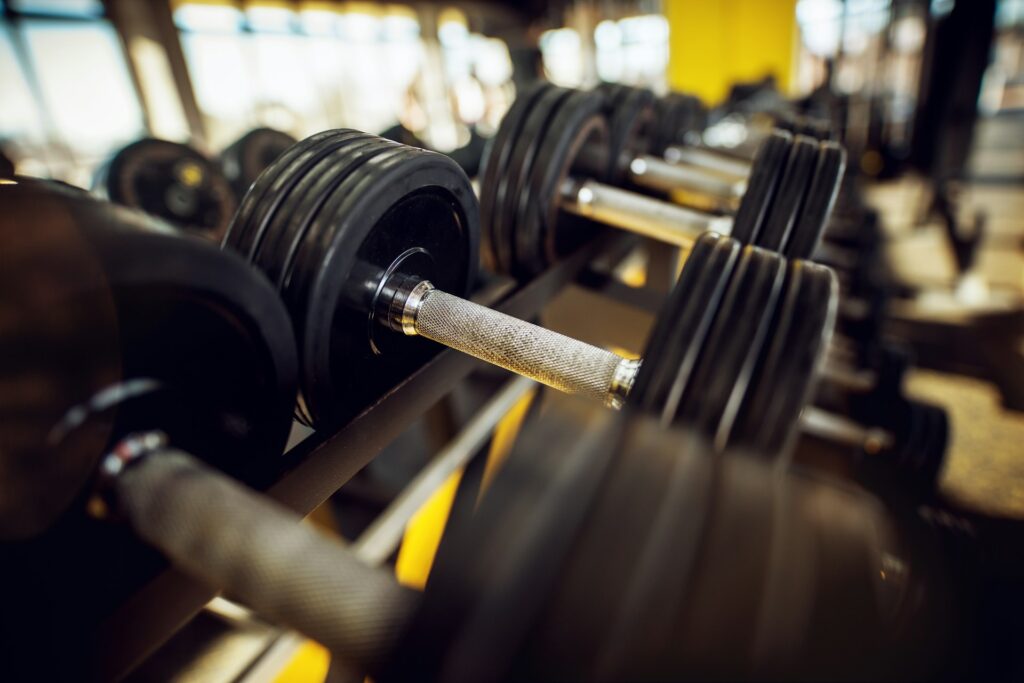
As you become more experienced, you’ll develop a better understanding of how your body responds to different supplements. This knowledge will allow you to fine-tune your regimen for optimal results.
For instance, you might find that you respond particularly well to casein protein before bed, helping to support muscle growth during sleep. Or you might learn that a pre-workout supplement significantly boosts your performance, allowing you to push harder during training sessions.
You might even start exploring more advanced supplements like beta-hydroxy beta-methylbutyrate (HMB) or phosphatidic acid. These supplements have shown promise in research but are generally more beneficial for advanced lifters or those with specific needs.
Remember, the progression from beginner to advanced involves developing a deeper understanding of your body’s needs and how to meet them efficiently. It’s not about adding more supplements, but about optimizing your regimen based on your person response and goals.
Practical Exercises to Optimize Your Supplement Use
To get the most out of your supplement regimen, try these practical exercises:
Keep a Supplement Journal
Track what supplements you’re taking, when you’re taking them, and any effects you notice. This will help you identify what works best for you.
Include notes on your energy levels, workout performance, recovery time, and any side effects you experience.
Experiment with Timing
Try taking your protein at different times (e.g., before bed, first thing in the morning) and note any differences in how you feel or perform. Some people find that having protein before a workout helps them push harder, while others prefer it post-workout for recovery.
Blind Test
If you’re unsure about a supplement’s effectiveness, try a blind test. Have a friend prepare two identical shakes, one with the supplement and one without, and see if you can tell the difference in your workouts.
This can be particularly useful for pre-workout supplements or performance enhancers like beta-alanine.
Calculate Your Needs
Use online calculators to decide your specific protein and calorie needs based on your body weight and goals. Adjust your supplement intake accordingly.
Remember, these calculators provide estimates, so you may need to fine-tune based on your person response.
Research New Supplements
Choose a supplement you’re curious about and spend an hour researching it. Look for peer-reviewed studies and reputable sources.
This will help you make informed decisions about future additions to your regimen and develop a critical eye for supplement marketing claims.
Understanding Different Types of Protein
Protein powders come in various forms, each with it’s own benefits. Understanding these can help you choose the right protein for your needs:
Whey Protein
Whey is a fast-digesting protein that’s excellent for post-workout recovery. It comes in three main forms:
- Whey Concentrate: The least processed form, containing some lactose and fat.
It’s usually the most affordable option.
- Whey Isolate: A more refined form with higher protein content and less lactose and fat.
It’s a good choice for people who have mild lactose sensitivity.
- Whey Hydrolysate: Pre-digested for faster absorption.
It’s the most expensive form and is often used in medical nutrition products.
Casein Protein
Casein is a slow-digesting protein that provides a steady release of amino acids. It’s ideal for use before bed or during long periods without food.
Casein forms a gel in the stomach, which slows digestion and provides a sustained amino acid release for up to 7 hours.
Plant-Based Proteins
For those following a vegan diet or with dairy allergies, plant-based proteins are an excellent option. Common sources include:
- Pea Protein: High in branched-chain amino acids (BCAAs) and easily digestible.
- Rice Protein: Often combined with pea protein to create a complete amino acid profile.
- Hemp Protein: Contains beneficial omega-3 fatty acids but has a lower protein content compared to other options.
- Soy Protein: A complete protein source, but some people prefer to avoid it because of concerns about it’s effects on hormone levels.
When choosing a plant-based protein, look for blends that combine different sources to confirm a complete amino acid profile.
The Role of Pre-Workout Supplements
Pre-workout supplements have gained popularity in recent years. These products typically contain a blend of ingredients designed to boost energy, focus, and performance during your workout.
Common ingredients include:
- Caffeine: Increases alertness and can improve performance in both strength and endurance activities.
- Beta-Alanine: As mentioned earlier, this can improve endurance in high-intensity exercises.
- Citrulline Malate: May improve blood flow and reduce fatigue during exercise.
- Creatine: Often included in pre-workouts, though it doesn’t need to be taken pre-workout specifically to be effective.
- B-Vitamins: These play a role in energy metabolism and can help combat fatigue.
While pre-workout supplements can be beneficial, they’re not necessary for everyone. If you’re sensitive to stimulants or work out in the evening, you might want to avoid pre-workouts containing caffeine.
Always start with a lower dose to assess your tolerance.
Post-Workout Nutrition: Beyond Protein
While protein is crucial for post-workout recovery, don’t neglect other nutrients. Consider these factors for optimal post-workout nutrition:
Carbohydrates
Consuming carbs along with protein after your workout can help replenish glycogen stores and may enhance protein synthesis. Aim for a ratio of about 3:1 carbs to protein.
Electrolytes
Intense workouts can reduce electrolytes through sweat. Replenishing these, especially sodium and potassium, can help with hydration and recovery.
Antioxidants
Exercise induces oxidative stress in the body. Consuming antioxidants post-workout may help combat this stress and support recovery.
Foods high in antioxidants include berries, dark leafy greens, and nuts.
Omega-3 Fatty Acids
These healthy fats have anti-inflammatory properties that may help reduce muscle soreness and support recovery. Consider adding a fish oil supplement or including fatty fish in your post-workout meal.
The Importance of Micronutrients
While macronutrients (protein, carbs, and fats) often get the most attention in muscle building, don’t overlook the importance of micronutrients. Vitamins and minerals play crucial roles in energy production, protein synthesis, and overall health.
Consider these key micronutrients:
Vitamin D
Many people are deficient in vitamin D, which plays a role in muscle function and strength. If you don’t get much sun exposure, consider a vitamin D supplement.
Magnesium
This mineral is involved in over 300 enzymatic reactions in the body, including those related to muscle function and protein synthesis. Foods high in magnesium include dark leafy greens, nuts, and seeds.
Zinc
Zinc plays a role in protein synthesis and hormone production. It’s found in high amounts in oysters, beef, and pumpkin seeds.
Iron
Iron is crucial for oxygen transport in the blood. If you’re feeling unusually fatigued, consider getting your iron levels checked.
A high-quality multivitamin can help confirm you’re getting a broad spectrum of micronutrients, but aim to get most of your vitamins and minerals from a varied, nutrient-dense diet.
Managing Expectations and Setting Realistic Goals
As you begin on your supplement journey, it’s crucial to manage your expectations and set realistic goals. Here are some points to keep in mind:
Results Take Time
Even with the best supplement regimen, significant muscle gains take time. Expect to see noticeable changes in strength and muscle mass after about 8-12 weeks of consistent training and proper nutrition.
Individual Results Vary
Factors like genetics, age, diet, sleep quality, and stress levels all influence how quickly you build muscle. Don’t compare your progress to others – focus on your own improvement over time.
Supplements Aren’t Magic
Supplements can enhance your results, but they can’t compensate for poor training, inadequate nutrition, or not enough rest. Prioritize these fundamentals before worrying about optimizing your supplement stack.
Track Your Progress
Keep a log of your workouts, measurements, and progress photos. This will help you objectively assess your progress and make informed decisions about your training and supplement use.
Be Patient and Consistent
Building muscle is a long-term process. Stay consistent with your training, nutrition, and supplement use, and trust in the process.
Remember, small, consistent efforts compound over time to produce significant results.
Frequently Asked Questions
What is the best protein powder for beginners?
For most beginners, a whey protein concentrate or isolate is a great starting point. It’s affordable, widely available, and has a complete amino acid profile.
If you’re lactose intolerant or vegan, consider a plant-based protein blend.
How much protein do I need to build muscle?
The general recommendation is 1.6 to 2.2 grams of protein per kilogram of body weight per day for muscle building. For a 70kg person, this would be about 112-154 grams of protein daily.
Is creatine safe for long-term use?
Yes, creatine is considered safe for long-term use in healthy people. It’s one of the most researched supplements in sports nutrition with a strong safety profile.
When should I take protein powder?
While timing isn’t as crucial as once thought, taking protein within a couple of hours after your workout can be useful. Some people also find it helpful to have protein before bed to support overnight muscle recovery.
Can supplements replace a healthy diet?
No, supplements should complement a healthy diet, not replace it. Whole foods provide a wide range of nutrients that work synergistically in your body.
Do I need to cycle off creatine?
No, cycling off creatine isn’t necessary. You can safely take it continuously without cycling.
Are BCAAs necessary if I’m already taking protein powder?
If you’re getting enough protein from your diet and protein powder, extra BCAAs may not be necessary. However, some people find them beneficial for reducing muscle soreness and supporting recovery.
Can beta-alanine improve my strength?
Beta-alanine primarily improves endurance in high-intensity exercises lasting 1-4 minutes. While this may indirectly support strength gains by allowing you to perform more reps, it doesn’t directly increase strength like creatine does.
Is it safe to combine many supplements?
In general, it’s safe to combine the supplements mentioned in this article. However, always check for potential interactions, especially if you’re taking any medications or have health conditions.
How long does it take to see results from supplements?
The timeline for seeing results varies depending on the supplement and person factors. For example, you might notice the effects of caffeine immediately, while creatine typically takes a few weeks to show noticeable benefits.
Consistency is key for most supplements.
Key Takeaways
- Start with the essentials: protein powder and creatine monohydrate.
- BCAAs and beta-alanine can provide extra benefits for recovery and endurance.
- Consistency is key – supplements work best when taken regularly.
- Supplements enhance, but don’t replace, a good diet and training program.
- Listen to your body and be willing to adjust your supplement regimen as needed.
